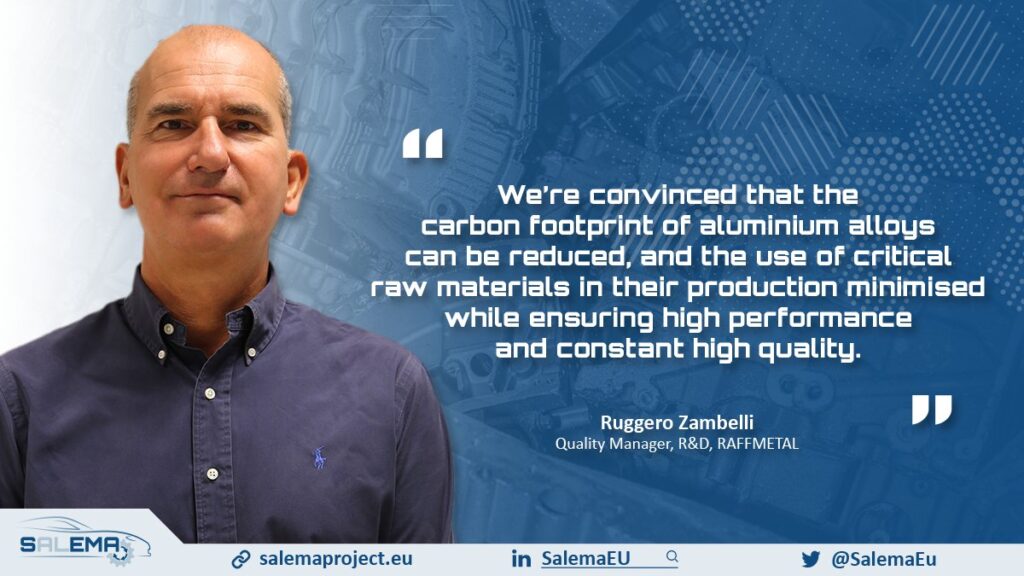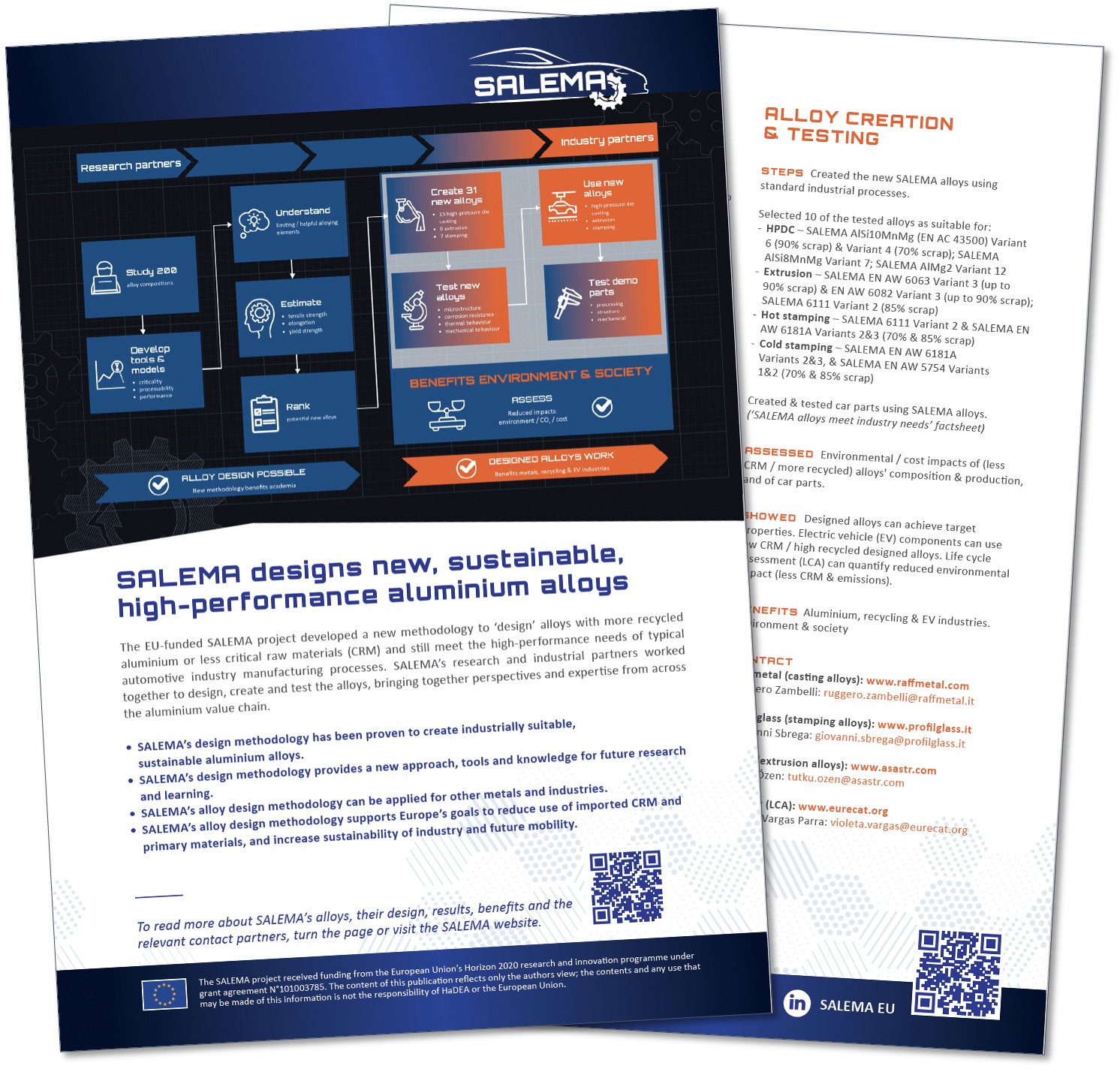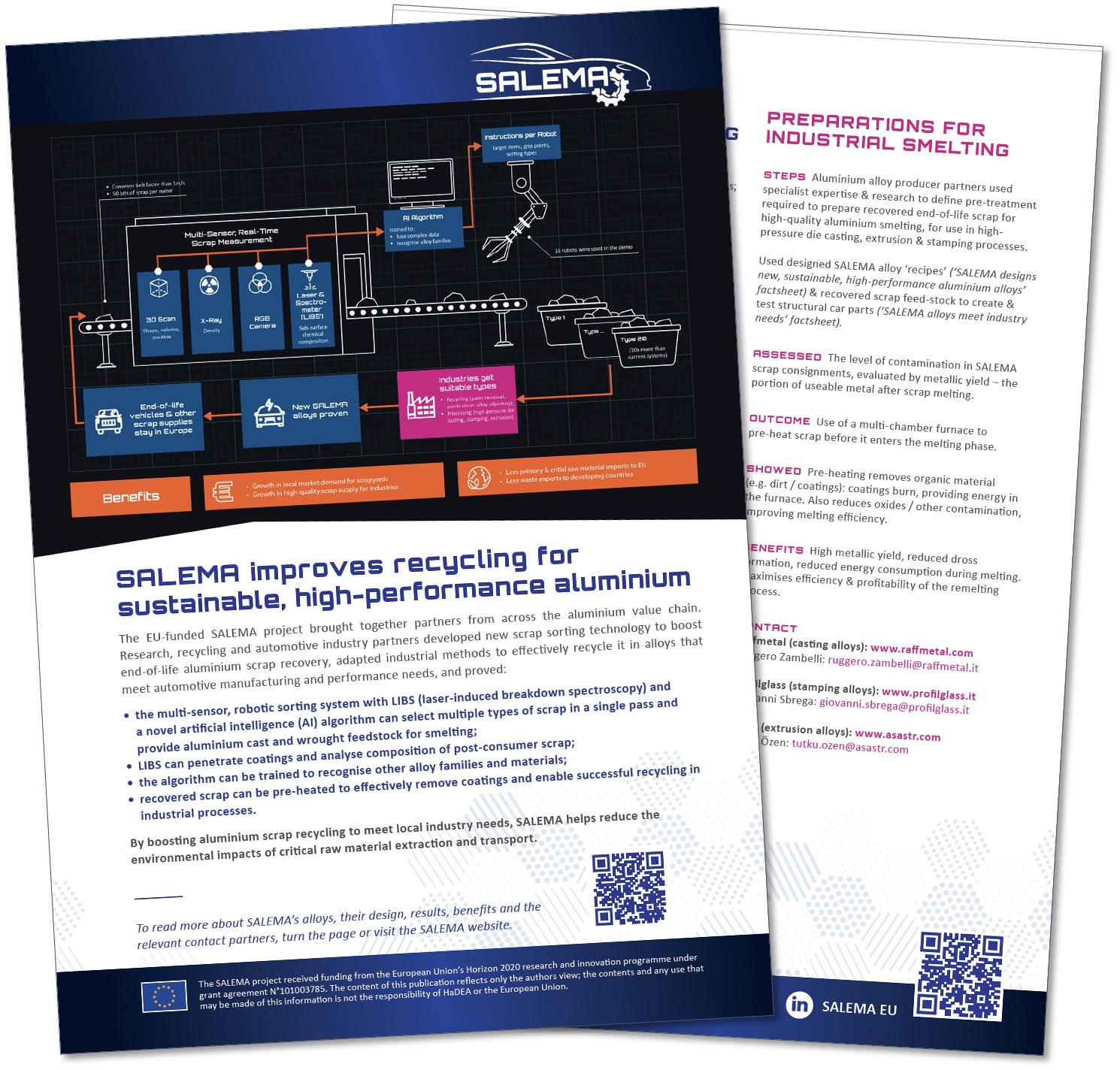
Short interview: Ruggero Zambelli, Raffmetal
Ruggero Zambelli is Quality Manager, Research & Development, with SALEMA partner Raffmetal. As the project was drawing to an end, the SALEMA communications team asked him a few questions about SALEMA, his role in it, and what it has achieved…
Thanks to SALEMA, in future cars will be…?
…lighter and greener!
How has your organisation contributed to SALEMA?
Raffmetal is an aluminium alloy producer that produces alloys by melting scrap metal. It’s important to recycle as much scrap as possible, and at the same time to reduce our use of primary critical raw materials such as imported silicon and magnesium. It’s difficult to find the kind of scrap that’s good to use for high-performance applications, because all scrap already contains some critical raw materials, which affect the performance of the final alloy. And obviously we have to guarantee the performance of the alloys so that they can be used by industry. We have used our specialist knowledge to define what pre-smelting treatment recovered scrap must go through in order to be used for quality alloys. And we have produced the specific alloys that were ‘designed‘ and studied in the SALEMA project, ultimately helping to reduce the use of critical raw materials.
Why did Raffmetal join SALEMA - what's your vision?
We’re convinced that the carbon footprint of aluminium alloys can be reduced, and the use of critical raw materials in their production can be minimised, while also ensuring high performance and constant high quality.
Instead of using critical raw materials that you have to import from outside Europe, SALEMA has been able to use recovered aluminium scrap as a raw material to make new, high-performance alloys that are rich in recycled content. There is a lot of scrap in Europe so this is potentially a significant source of material for a circular economy. By keeping it in Europe, by recycling it, and so also by helping to reduce the use of imported critical raw material, this helps to reduce the export of waste and also emissions, the carbon footprint of the alloy.
How will this help to improve our future?
To recover, to re-use and to recycle end-of-life materials will be the future. So SALEMA helped by improving scrap sorting technologies, figuring out how to treat it for industrial smelting for recycling, and by creating and validating new alloys that perform well in industrial processes and car parts, even with more scrap in the alloy.
Would you drive an electric car made with SALEMA alloys?
Yes! I think the electric car will be the future. And we will use a lot of aluminium alloy to reduce the weight of cars. And using the alloys developed in SALEMA, we will also reduce the use of critical materials in these alloys and in cars. And so we reduce the impact of the car’s carbon footprint on the environment.

